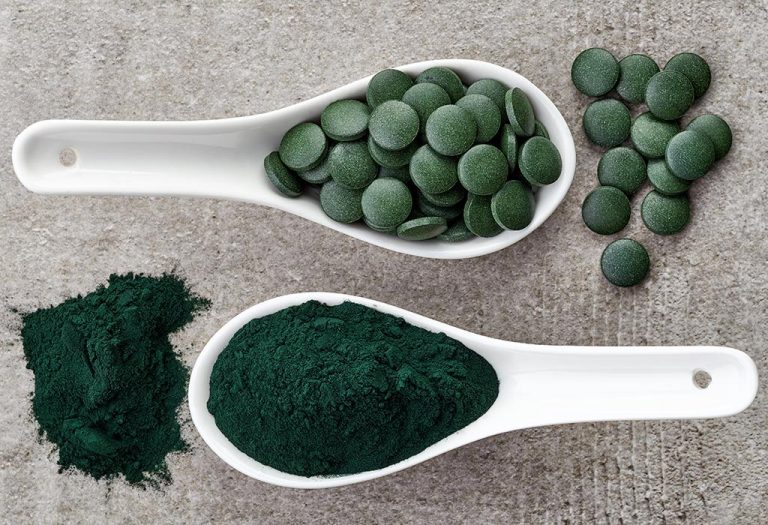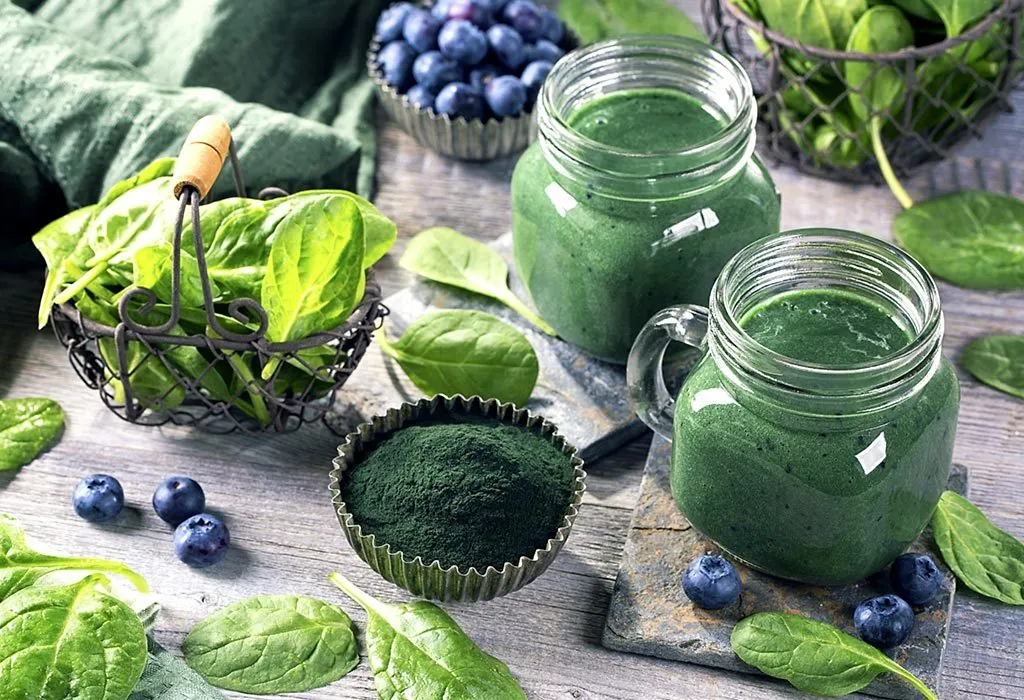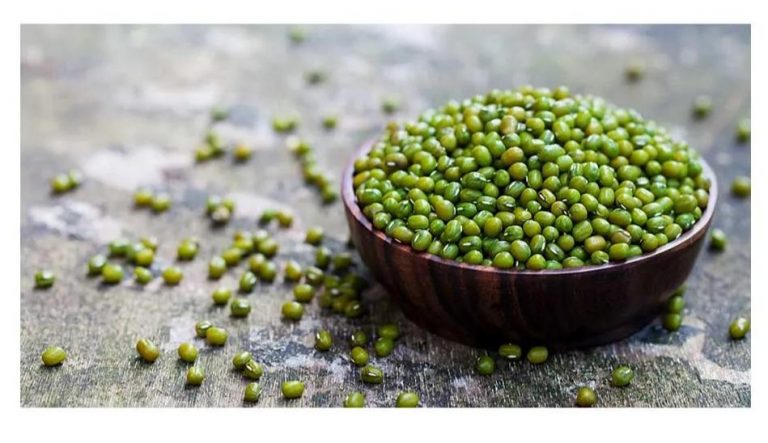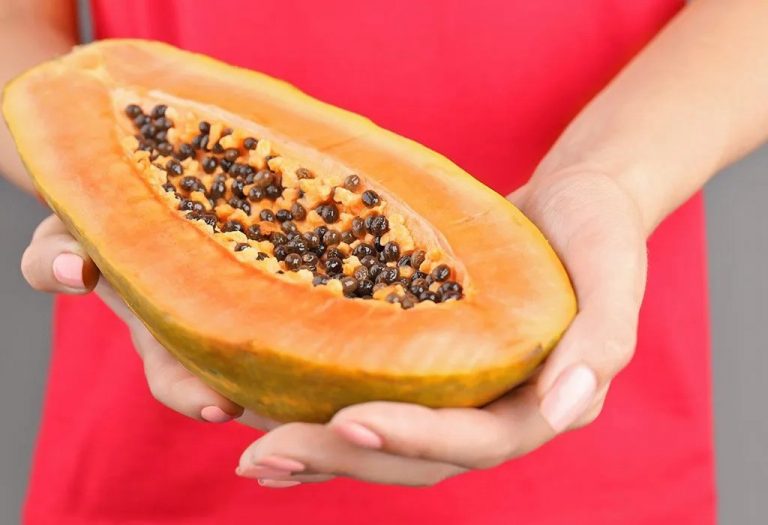Consuming Spirulina During Pregnancy – Is It Safe?

Pregnant women must eat a healthy diet. But often, to-be-mothers are concerned about the safety and side effects of the foods they consume during pregnancy. One food that is often recommended to women during pregnancy is spirulina. It is essential to know the relation between spirulina and pregnancy, and why this superfood is recommended. In this article, we shall summarise the nutrient value of spirulina and also take a look at its benefits and side effects if any. So, can you consume spirulina during pregnancy? Let’s find out!
What Is Spirulina?
Spirulina, which is a biomass of blue-green algae or cyanobacterium which can be consumed by humans. Spirulina has the ability to photosynthesize and produce energy from sunlight, just like plants. It has the ability boost the level of nutrients in the body and increase immunity, which helps protect against different diseases. Hence, many women consume spirulina in pregnancy.
Can You Consume Spirulina During Pregnancy?
While some experts recommend spirulina due to its nutritional value, and its ability to support a hearty pregnancy and lactation, the postulation is still ambiguous. The impact of spirulina on pregnant women and their foetuses have not been studied expansively, and there is no clear data regarding the safety of spirulina for pregnant women. It is, therefore, debatable and the question remains if spirulina is good during pregnancy. Despite multiple successful studies conducted on animals, authorities are reluctant to make claims about the absolute safety of spirulina during gestation in humans.
Listed for reference, nevertheless, is the nutritional content for 7 grams of spirulina:
- 11 % of the recommended dietary allowance of Thiamine (Vitamin B1)
- 15% of the recommended dietary allowance of Riboflavin (Vitamin B2)
- 4% of the recommended dietary allowance of Niacin (Vitamin B3)
- 21% of the recommended dietary allowance of Copper
- 11% of the recommended dietary allowance of Iron
- Trace amounts of manganese, magnesium, and potassium
- 7 grams of digestible carbohydrates
- 4 grams of high-quality protein and all essential amino acids
- Omega-3 and omega-6 fatty acids
Benefits of Consuming Spirulina During Pregnancy
Spirulina has fabulous health benefits due to the number of nutrients it packs into a single tablespoon. Spirulina powder during pregnancy can help in the following ways:
- All the micronutrients are bio-synthesised through a natural pathway by this minuscule water organism. Therefore, the nutrients are readily absorbed by the human body as compared to artificially synthesised nutrients.
- Although spirulina grows in both salt and fresh water, it thrives better in freshwater and even contains a comparatively minute amount of sodium, which can help keep your blood pressure under check.
- Spirulina improves the haemoglobin levels of the body and prevents anaemia and fatigue during pregnancy.
- The proteins can offer additional nourishment to the foetus and augment its growth while helping pregnant women strengthen their bones.
- Spirulina is abundant in phycocyanin, an antioxidant that helps in preventing free radicals from causing oxidative damage and ageing of tissue and cells rapidly.
- Since it is loaded with chlorophyll, spirulina prevents toxins from accumulating in the body.
- Spirulina can also help reduce blood pressure which is a common pregnancy issue. This happens due to an increase in production of nitric oxide that assists relaxation and dilation of blood vessels.
- It may also help combat another common pregnancy issue, i.e. gestational diabetes. HbA1c has been known to reduce considerably due to the consumption of spirulina.
- Spirulina has the ability to block inflammation-causing molecules in the body, thus working as a powerful anti-inflammatory.
- The anti-oxidant properties in spirulina counters oxidation of fatty structures in the body, which helps lower the risk of heart disease.
How Much Spirulina to Eat in Pregnancy?
The recommended dosage for an adult is 1 to 2 tablets of 500 mg strength per day. However, it is always best to consult a doctor regarding the amount of spirulina you can consume daily.
Are There Any Side Effects of Eating Spirulina During Pregnancy?
While there are no substantial studies describing the effects of spirulina on pregnant women, there are known dangers that need to be understood in depth by those who intend to take it as a supplement during pregnancy.
- Spirulina could be contaminated with mercury and other heavy metals, and harmful bacteria which could put your health at risk.
- Spirulina, if taken by a woman who has autoimmune diseases like lupus or rheumatoid arthritis, can aggravate the symptoms.
- Spirulina contaminated with anatoxin, microcystin or cyanotoxin can cause difficulty in breathing, liver toxicity, inflammation of the pancreas, nerve damage, kidney failure, heart muscle damage, and seizures.
- Phenylalanine contamination can be dangerous for people with PKU (phenylketonuria), and pregnant women risk the fact that their foetus has not been tested for resistance to phenylalanine.
- Contaminated spirulina could also cause rapid heartbeat, excessive thirst, vomiting, weakness, nausea, and stomach pain.
Ways to Add Spirulina in Your Pregnancy Diet
Spirulina is incredibly versatile and can be consumed in multiple ways during pregnancy. Here are some suggestions on how you can add spirulina to your diet.
- Spirulina can be consumed in tablet or capsule form.
- Add spirulina to salads.
- You can make spirulina-based smoothies.
- It can be added to fresh fruit juices
- Mix spirulina powder in a glass of water.
- Spirulina can be added to desserts.
FAQ
1. Is Spirulina Good For Fertility or Conception?
As spirulina is a great source of nutrients and anti-oxidants, consuming it regularly can have a positive effect on fertility and increase your chances of conception. However, it is always best to consult a doctor about the dosage of spirulina you can consume daily.
Spirulina is a superfood with innumerable health benefits if it is of high quality. Healthcare professionals and medical experts are, however, divided on the use of spirulina during pregnancy. It is best for a pregnant woman to consult a medical practitioner and weigh the advantages over the potential risks before arriving at a conclusion.
Disclaimer: The content mentioned above is not be substituted for professional medical advice, diagnosis, or treatment. Please consult your Doctor before consuming spirulina/supplements when pregnant.
References/Resources:
1. Spirulina; Drugs and Lactation Database; https://www.ncbi.nlm.nih.gov/books/NBK501849/; June 2021
2. What Is Spirulina and Why Is It So Good for You?; Cleveland Clinic; https://health.clevelandclinic.org/spirulina-superfood-youve-never-heard/; October 2022
3. Blue-Green Algae; Medline Plus; https://medlineplus.gov/druginfo/natural/923.html; October 2021
4. Gogna. S, Kaur. J, Sharma. K, et al.; Spirulina- An Edible Cyanobacterium with Potential Therapeutic Health Benefits and Toxicological Consequences; PubMed; https://pubmed.ncbi.nlm.nih.gov/35916491/; August 2023
5. Kapoor. R, Mehta. U; Effect of supplementation of blue green alga (Spirulina) on outcome of pregnancy in rats; PubMed; https://pubmed.ncbi.nlm.nih.gov/8464842/; January 1993
Also Read:
Biotin during Pregnancy – Is It Safe?
Collagen Powder in Pregnancy
Is Elderberry Safe when Pregnant?
Was This Article Helpful?
Parenting is a huge responsibility, for you as a caregiver, but also for us as a parenting content platform. We understand that and take our responsibility of creating credible content seriously. FirstCry Parenting articles are written and published only after extensive research using factually sound references to deliver quality content that is accurate, validated by experts, and completely reliable. To understand how we go about creating content that is credible, read our editorial policy here.




































